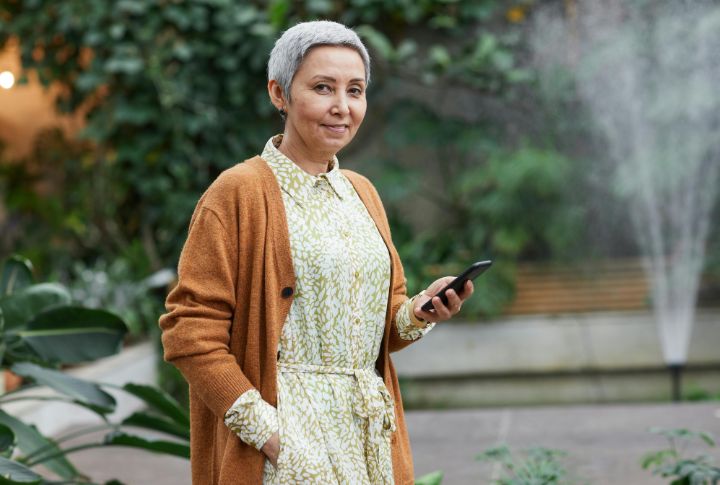
Japanese are leaders in the development of innovative solutions that combine care, community, and technology for aging populations. With 17.3% of Americans aged 65 or older in 2022, the U.S. faces a similar challenge. Learning from Japan’s success, the U.S. can find inspiration to better support its aging population.
Age-Friendly Infrastructure

Japan has designed supremely suitable public spaces like parks and stations, keeping seniors’ convenience in mind. The U.S. could benefit as well by prioritizing age-friendly infrastructure, making daily navigation easier for older adults. Japanese architecture is made to be easy to walk, with paths and public spaces that work well for wheelchairs and mobility aids.
Healthcare Focused on Geriatrics

Japan leads in elderly care through innovative technology, community programs, and a people-first approach. To support older adults, they have developed smart home devices, wearables, and digital health solutions. It would be beneficial for the U.S. to adopt a similar system of geriatric healthcare that trains and educates professionals to address the special needs of seniors.
Workforce Participation

As a country, Japan promotes part-time and flexible jobs to seniors past retirement age. The idea is to give seniors a way to stay involved in society while also imparting their knowledge and experience to the next generation. Through regulation and subsidy programs, the Japanese government pushes businesses to improve working conditions for the elderly.
Preventative Healthcare Measures

Health insurance providers in Japan are required to provide yearly physical checkups to their members who are between the ages of 40 and 74 as well as 75 and older. The Elderly Health Care Act passed in 1983, mandates yearly physical examinations for the elderly in Japan in order to identify and treat chronic illnesses early on.
Elderly Social Integration

Socialization is vital for older adults as it benefits their mental health. NHI reports that 24% of U.S. seniors face social isolation, with 4% experiencing it severely. The key takeaway from Japan is to encourage seniors to stay engaged in their communities by participating in activities like volunteer work or joining local councils.
Comprehensive Mental Health Services

The Kihon Checklist (KCL), which the Japanese Ministry of Health developed, is a key tool for assessing depression in older adults. Of its 20 questions, five focus specifically on depression symptoms, helping identify those in need of care. This proves mental health is a priority in Japan, with healthcare targeting the elderly with anxiety and depression.
Robotics in Elderly Care

Japan has been creating robots for over two decades to assist in elderly care. It has pioneered social robots like “Pepper” to keep seniors engaged and connected. Similar technology can be used by the U.S. to support caregivers and improve the quality of life for seniors. Robots can ease caregivers’ workloads while providing companionship for elderly individuals.
Intergenerational Living

Japan’s intergenerational living reflects deep-rooted values of filial piety, where caring for the elderly is a family and community responsibility. In these intergenerational communities, young and old often live under the same roof, mutually supporting each other. This model helps preserve cultural traditions while addressing aging population challenges—a valuable lesson for the world.
Elderly Daycare

In Japan, Adult Day Care (ADC) services emphasize quality of life, technology, and respect for individuals. For example, the Cocofump complex in Toyoshikidai offers 105 rooms for both assisted and independent living, giving residents peace of mind. Everyone deserves this level of care, and the world could be a happier place if more followed this approach.
Age-Inclusive Transportation Systems

Upgrading transportation networks with more senior-friendly features would significantly benefit the elderly in the U.S. Japan’s Mobility-as-a-Service (MaaS) system helps the elderly by offering seamless, user-friendly transportation options. With integrated services like trains, buses, and taxis available through a single app, seniors can travel more independently. For older persons, the system lessens mobility barriers and encourages social interaction.
Lifelong Learning Programs

Investing in lifetime learning enhances the creation and connectivity of new neurons, potentially reducing dementia risk. Japan prioritizes lifelong education for seniors, offering opportunities to keep their minds sharp and stay socially engaged. Implementing accessible educational programs designed for older adults in the U.S. would promote mental health and boost cognitive resilience in aging populations.
Accessible Technology Training

Japan offers classes to teach seniors how to use smartphones, apps, and the internet, helping them stay connected in a digital world. According to California Mobility, 73% of seniors aged 65 and older report needing help with new devices. The U.S. could expand such programs to ensure older adults are not left behind in the tech-driven future.
Promoting Senior Fitness Programs

Health Japan 21 (HJ21) is a national health initiative focused on improving public health by reducing premature deaths, extending healthy lifespans, preventing and managing non-communicable diseases (NCDs), and addressing health disparities. There are many physical fitness programs offered in Japan for the elderly, focusing on low-impact exercises such as Tai Chi and stretching.
Using AI for Health Monitoring

According to California Mobility, 40% of seniors are willing to track their health using technology. Japan employs AI for remote health monitoring, enabling seniors to manage their health from home. Adopting similar systems in the U.S. would make healthcare more proactive and convenient, particularly for seniors living in rural or underserved areas.
Respect for Elder Wisdom in Society

Respect is a fundamental aspect of human rights, bioethics, and geriatric care. In Japan, elders are deeply honored and regarded as essential members of society. Age-specific terms are used when addressing them, often with “san” added to their names. Moreover, on September 18, the Japanese celebrate the “Respect for the Aged Day” every year.
